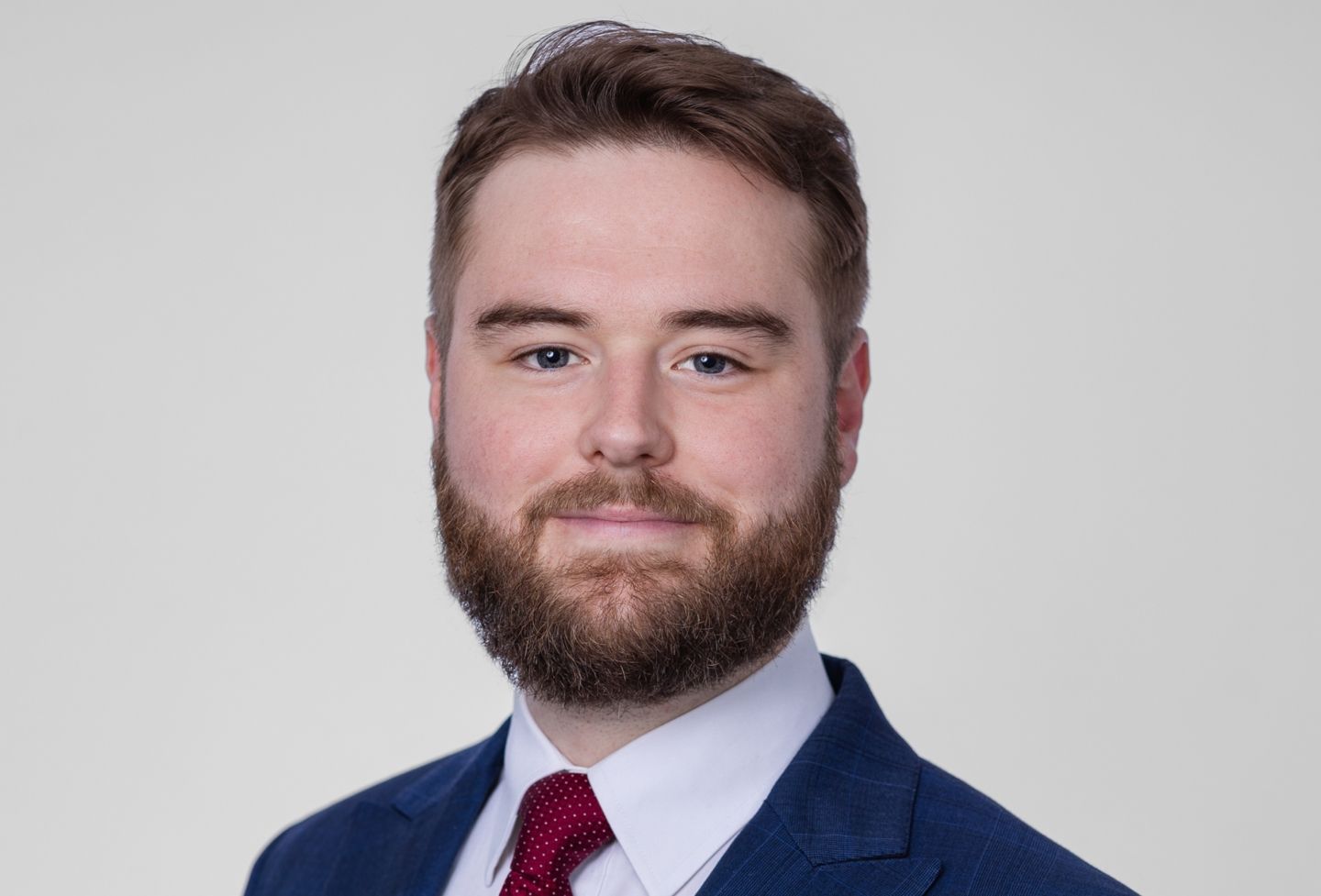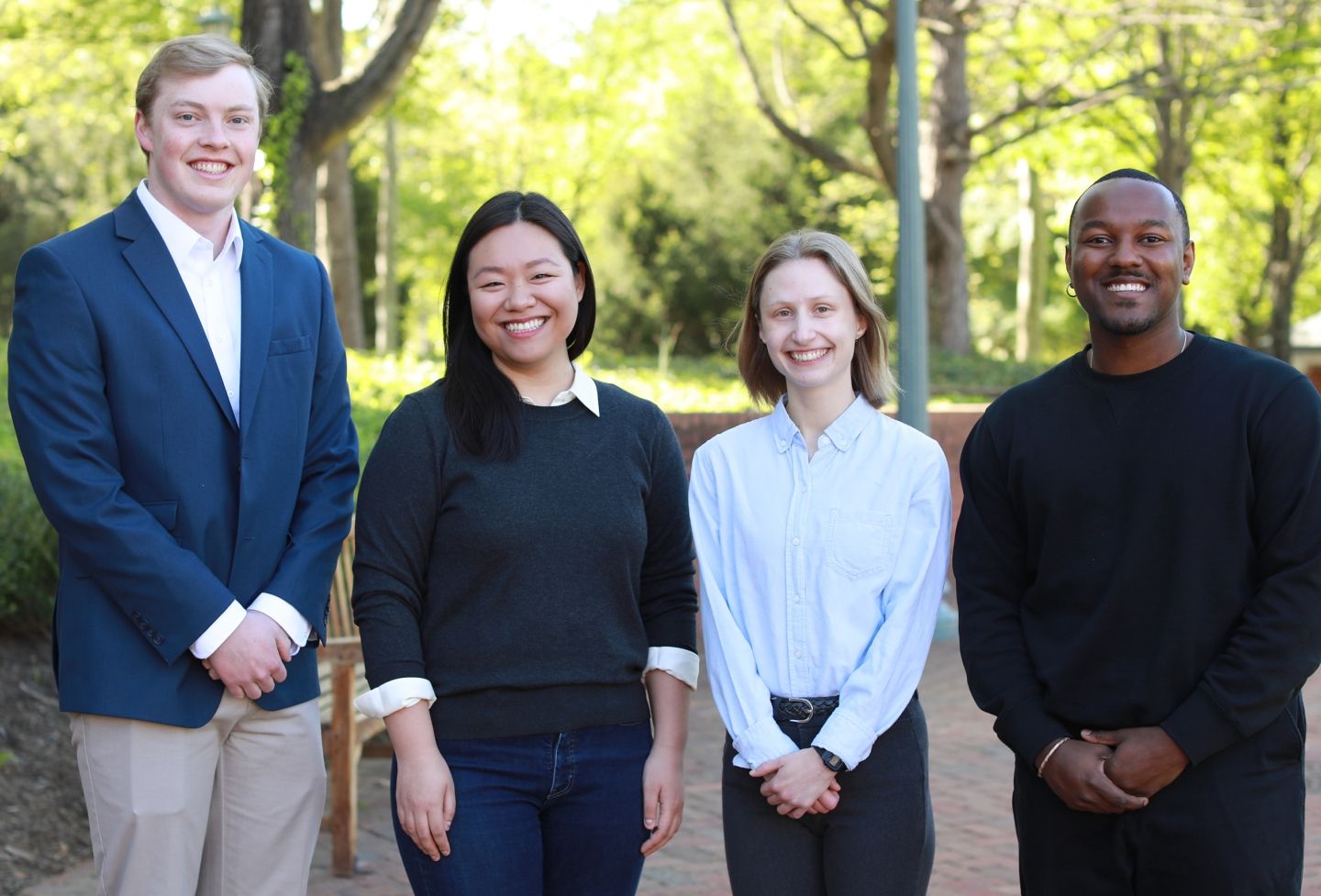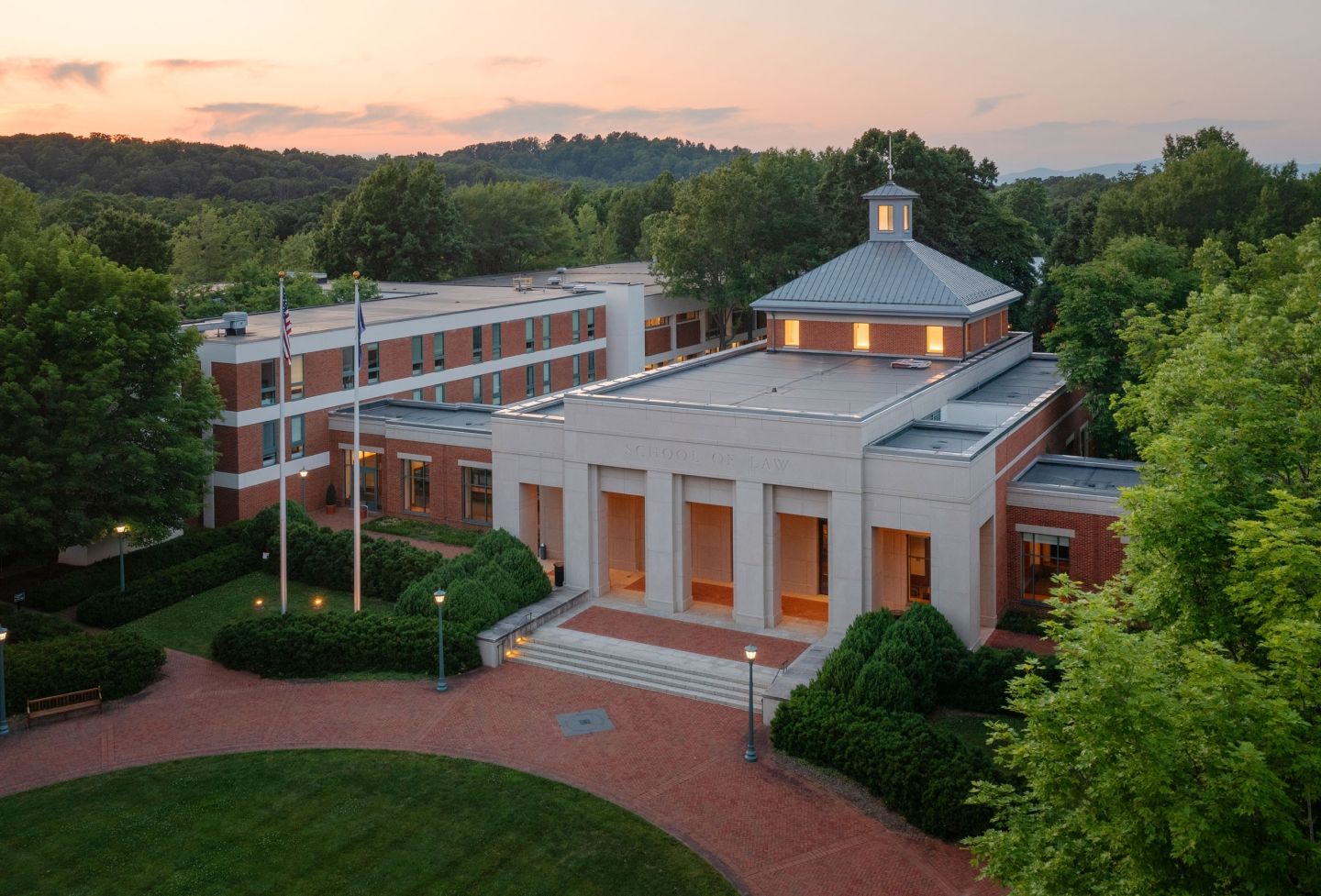Redford Appeals to Law Students to Fight Human Rights Abuses
 A career combating human rights abuses is the most rewarding a lawyer could undertake, co-founder of EarthRights International Katie Redford '95 told the crowd in Caplin Auditorium to open the sixth annual Conference on Public Service & the Law Feb. 11.
A career combating human rights abuses is the most rewarding a lawyer could undertake, co-founder of EarthRights International Katie Redford '95 told the crowd in Caplin Auditorium to open the sixth annual Conference on Public Service & the Law Feb. 11.
Redford went to Thailand during her first summer in law school on a grant from the Public Interest Law Association to write a report on human rights abuses associated with its logging industry. There she met Ka Hsaw Wa, a Burmese student human rights leader, then a refugee from its military dictatorship, who she later married. She learned from him that soldiers of the Burmese dictatorship were involved in murder, rape, and forced labor as they guarded the 39-mile Yadana pipeline being built by the American-owned oil company Unocal and French-owned Total to carry natural gas from Indian Ocean wells to Thailand. About 35,000 people live in the area affected by the pipeline's construction.
Redford returned to Thailand the next summer, also on a PILA grant, to research World Bank projects to dam rivers on the Thai-Burma and Thai-Laos borders. She documented more about the pipeline-associated human rights abuses. As a third-year student, she wrote a paper advancing the novel idea that American corporations could be liable under the Alien Tort Claims Act, a seldom-used law dating to 1789, if it could be shown that they were abetting the Burmese military in human rights abuses. Her professor, Jack Goldsmith, gave the paper an A, but advised Redford that she was an idealist.
EarthRights was founded after she graduated from Law School (the winner of the Robert F. Kennedy Award for Public Service) with a budget of $40,000. The organization now has offices in New York, Washington, D.C, and Bangkok, as well as schools in Thailand and Ecuador, an annual budget of $1 million, and a staff of 26.
In 1996, she filed Doe v. Unocal in California in state and federal courts and last December Unocal entered into unprecedented settlement negotiations, the first time outside the Holocaust context that a corporation has agreed to compensate human rights victims. Business Week reported that a settlement worth roughly $30 million was reached, calling it "a milestone in human rights advancement" and the largest payout to such victims in history.
"We sue oil companies — that's fun!" Redford said after hearing herself introduced. She said her organization's other mission is to "train people to know what to do when their rights are violated so they can advocate for themselves."
Redford's main aim was to encourage law students to embark on public service careers. "There's hundreds, maybe thousands of ways, to get from where you are [in the audience] to where I am."
The prerequisite qualities for success are "a passion for what you do and commitment — the resolve to see it through to the end. As long as you have those, you'll do it," she said.
She claimed to have "stumbled into" her work and that "happened to her," though she acknowledged that she grew up as "a generalized bleeding heart" and came to law school driven by a strong desire to work for social justice.
While she was living in a Burmese refugee camp, experiencing explosions nearby — the columns of the school she was working in were shaking from them — refugees who were "literally fleeing their burned homes, fearing murder, rape, or being seized for forced labor would look me in the eye and say, 'Please, when you go back to your country, use your freedom to protect ours. Use your rights to protect ours.' That sticks with me to this day and that became the force that has driven the work that I do," she said.
Burma's military dictatorship cracked down on the population after 82 percent of voters rejected the government and demanded a true democracy. "What happened to the people really dwarfs what happened at Tiananmen Square, but it happened behind closed doors because there was no press, no human rights monitors, no outside world there to see it.
"Men, women, children, monks were shot. Doctors and nurses were shot as they tried to tend to the wounded. You could imagine … a government that would do this to its people, what would it do to the environment, the trees, the rivers, the animals, the resources that could make this an incredibly rich and thriving economy?
"I was shocked. I couldn't believe it. Then I found out there was an American oil company partnering with the military dictatorship," she said. "Hundreds of thousands have become refugees in order to make way for development. This is what I discovered my first summer, that human rights abuses were happening in order to secure natural resources."
One of her clients, whom she referred to as Jane Doe I, witnessed her infant baby being kicked into a cooking fire and killed by Burmese soldiers who were trying to learn from her where he husband had gone after he escaped from a forced labor crew. She did not know. "That will get your heart pounding," Redford said. "You've got to do something. And how? Any way you can."
She showed a videotape of a court proceeding in which Unocal's lawyer tried to argue that security around a helipad had nothing to do with security along the pipeline next to it. The judge is clearly incredulous, asking why a helipad would exist there otherwise. "Do you want to be that guy? Or me?" Redford asked the crowd. "The cases are really about sending a message to corporations that human rights abuses are not going to be free."
She could not reveal details of the settlement reached with Unocal.
"This is the most rewarding job in the world. It's not a sacrifice. It's an incredible experience and I want you all to have it," said Redford. "You won't live for the weekends.
"And there's glamour — three weeks ago I was dancing with Sean Penn" at an event at the Martin Luther King Center in Atlanta.
"The pay is great. I say that totally seriously. I have a house in the suburbs, a car, two kids and a guinea pig. What more do I need?" she asked.
Redford advised students to develop particular skills while still in law school.
"Get an international or intercultural experience. Learn different perspectives.
Be humble. There's a fine line between righteousness and arrogance. Don't take yourself too seriously or you'll burn out. That's a big problem in public service work.
"Get out of the lawyer culture. Listen to other arguments, not with the purpose of refuting them. Our point of view isn't always right. There has to be respect for others."
She advised them to do something that gives them experience with fundraising, to learn how to organize people and to develop public speaking skills.
"The world is waiting to be saved and you are the ones to do it."
Founded in 1819, the University of Virginia School of Law is the second-oldest continuously operating law school in the nation. Consistently ranked among the top law schools, Virginia is a world-renowned training ground for distinguished lawyers and public servants, instilling in them a commitment to leadership, integrity and community service.


